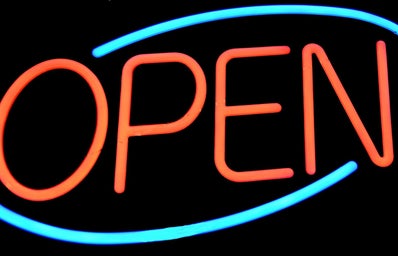“It was an uncertain spring,” begins the first page of Virginia Woolf’s, “The Years,” and these words ring especially true during this first week of April.
The onset of COVID-19, or the novel coronavirus, has made for exceptionally uncertain times across the world as the virus took root. Countries first began suspending external travel before focusing their efforts on curbing interstate transit as well. Calls for social distancing increased, slowly at first, and then rapidly, aided by hashtags and social media. Stores, both big and small, strove to comply with government orders by limiting customers and increasing cleaning procedures, but as the severity of the virus became more apparent, it became clear that many of these measures were not enough.
Efforts to flatten the curve were initially dismissed as excessive, but the seriousness of the virus, combined with the rapidity of the afflicted’s deterioration, and coupled with startling images and tales from the frontlines of first responders finally managed to convince a skeptical public that COVID-19 was not just the flu or a casual illness – it was a pandemic and needed to be treated as such.
Social distancing and stay-at-home orders are absolutely crucial in the effort to flatten the curve but have had serious ramifications on small businesses across the nation. As small, locally-owned businesses receive less and less traffic, concerns continue to grow regarding their longevity in this new reality. According to a Goldman Sachs survey published in March, 51% of 1,500 respondents fear that they will only be able to operate under these conditions for the next three months. 96% have already been impacted by COVID-19, and 75% have seen their sales drop since the declaration of the pandemic.
When I was still living on campus, I frequented local coffee shops like Simply Social for my caffeine fix between classes. Back home in Fredericksburg, I often find myself downtown, exploring its variety of small, locally-owned businesses, where you can find everything from used books to boba tea to bicycles, with no shortage of clothing stores, coffee shops, and restaurants to choose from. These same colorful establishments are facing a bleak reality as their sales continue to be drastically impacted by a pandemic with an end that seems to move further and further away.
As the World Health Organization declared COVID-19 a pandemic, mandatory stay-at-home orders were instituted with varying degrees of severity. Universities have been forced to shift their courses online for the remainder of the semester, and readjust for new concerns regarding housing, meal plans, and resources for students. Public schools are also closed, raising concerns about how children that depended on school meal plans will be fed throughout the nationwide quarantine. Corporations began temporarily closing their stores, and in some cases, firing their workers in large swaths, removing access to healthcare and eliminating their source of income, often providing little to no recourse for these employees. As the first of April drew nearer, it became apparent that, while some landlords were suspending rent, others refused, leaving tenants without income, and in some cases, without options.
For small business owners and employees of small businesses, questions of economic security are at the forefront of their plans going ahead. Small businesses have reasonable fear that the $2.2 trillion dollar stimulus plan, already criticized for not providing enough support for small businesses and furloughed employees, might not provide a reprieve in time to provide economic relief to rebound or restart businesses when the quarantine ends.
While the onus to stimulate an economic rebound for small businesses might be too heavy of a cross for the common person to bear, there are still ways that we can help support our local businesses throughout this time.
Carry-out and Curbside
Many restaurants, like the Mason-Dixon Cafe, offer carry-out and curbside orders, as states across the nation adhere to mandates to close all nonessential businesses. You can still get the same food that you would normally dine in for in a way that can help flatten the curve. While their dining rooms may be closed, they are still open for business.
Coffee and tea shops are also engaging with takeaway orders, so you can continue to get your daily caffeine fix responsibly. Coffee shops like Hyperion Espresso and Agora Downtown have closed their seating areas to the public, but provide their menu and offer their same services, albeit in slightly modified ways.
By adhering to the six feet of distance between people as suggested by the CDC with designated floor markings, and allowing a set amount of guests to enter their establishment at a time, these shops are taking great care to protect the community.
Some restaurants use Grubhub, DoorDash, or UberEats as well, which means you can get your favorite dishes and drinks without even leaving your home.
Gift Cards
Purchasing a gift card is another great way to help local businesses, this time in a way that provides immediate cash flow. Buying a gift card, whether for $10, $25, or even $100, provides businesses with revenue quickly and painlessly, and in a way that reduces contact. Many stores, like Willow, even offer their gift cards online!
Shopping Online
In the age of the internet, shopping online has definitely taken a stronghold on society. Luckily, it can also be used as a way to keep revenue flowing during these uncertain times. Global Threadz and Thrifts, a vintage thrift store also located in downtown Fredericksburg, has an Etsy shop and shows off their clothes, jewelry, and artwork on their Instagram stories, all available for purchase through Paypal, Venmo, and Cashapp.
Online sales are an excellent way to get the same great items, keep businesses going and limit exposure. Stores like Riverby Books are offering a $10/week Book of the Week program, for either local delivery, pickup, or shipping, and have even dedicated themselves to donating books to communities in need.
A lot of these actions might seem small, but they can have a big impact on small businesses during this pandemic. Many of us might be unable to support businesses during this time, but if you can, you should shop small. These stores reflect our interests, our passions, and strengthen the communities that we call home. They are our communities. Supporting your local small businesses is more than just an economic decision, it’s supporting those that will support you back.
Here are all of the restaurants, coffee shops, and stores mentioned in this article in the order in which they were listed. You should check out their websites and social media accounts for what they’re offering and see how you can help! You can also look online for stores in your area that you can support if you are able.
Simply Social Coffee, Fairfax, Virginia
Riverby Books, Fredericksburg, Virginia
Tea Tyme & Bubblicious, Fredericksburg, Virginia
Old Towne Bicycles, Fredericksburg, Virginia
Curitiba Art Cafe, Fredericksburg, Virginia
Foode, Fredericksburg, Virginia
Mason-Dixon Cafe, Fredericksburg, Virginia; Stafford, Virginia
Hyperion Espresso, Fredericksburg, Virginia
Agora Downtown, Fredericksburg, Virginia
Willow, Fredericksburg, Virginia
Global Threadz and Thrifts, Fredericksburg, Virginia



